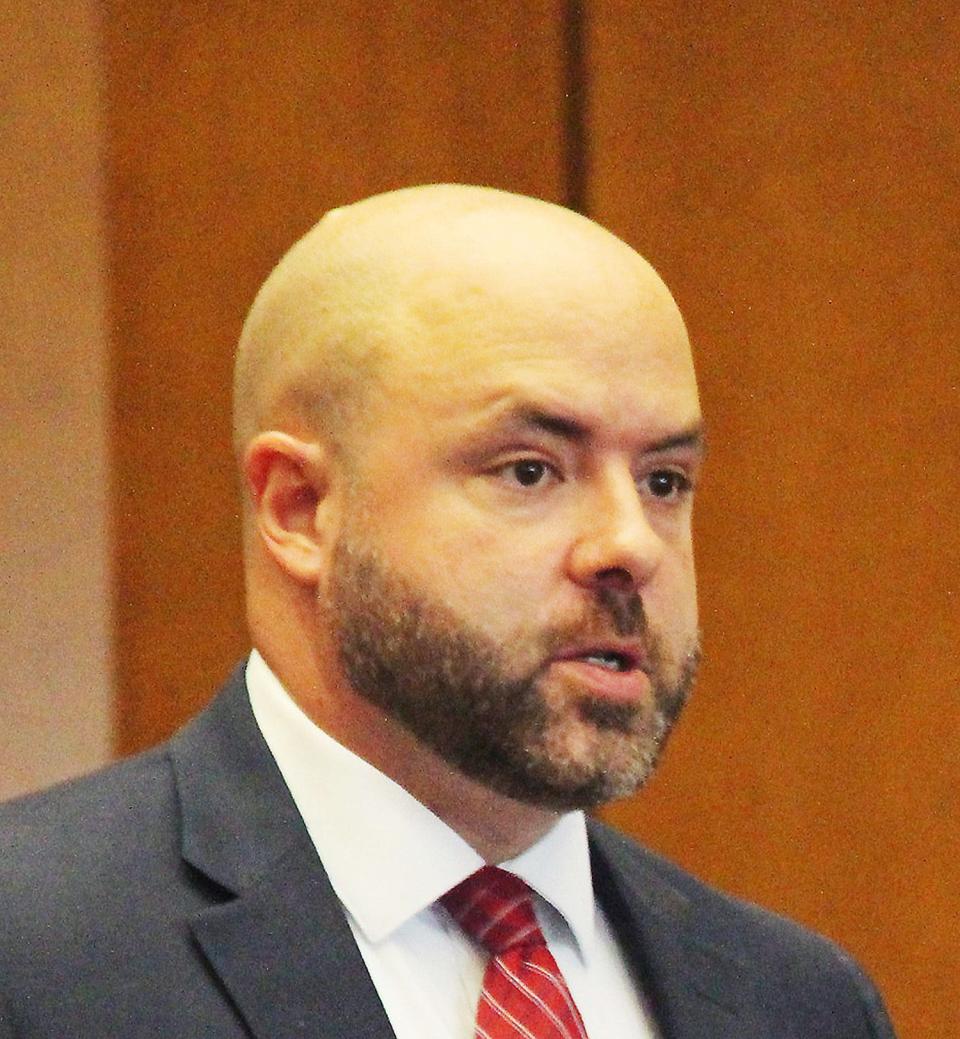How does Protect Illinois Communities Act play in Livingston County?

A restraining order was placed on a new law in Illinois at the end of last week that speaks of support for the Second Amendment of the US Constitution. Effingham County Judge Joshua Morrison ruled in favor of more than 850 plaintiffs that an enforcement on the new assault weapon ban law be halted for the moment.
The Protect Illinois Communities Act was signed into law on Jan.10 by Gov. JB Pritzker. It is basically a law that bans assault weapons. It immediately drew controversy from many entities around the state, including the Illinois Sheriffs Association. It didn't take long for the ISA to come up with a working outline that many sheriffs across the state, including Livingston County Ryan Bohm, posted indicating they will not be “enforcing” the new law.
The controversial law most certainly is headed to review by the Illinois State Court and possibly beyond.
Other controversy was raised by the announcement of as many as 90 of the 102 county sheriffs in Illinois that they will not enforce the law. A major factor in the controversy is what is meant by enforcement.
According to Illinois Sheriffs Association executive director Jim Kaitschuk, as quoted by Rich Miller in his “Capitol Fax” column, “All they are saying is ‘We’re not going to knock on people's doors to ask whether they have registered their firearms. And if they're arrested solely on that charge, we will not house them in our jails until ordered to do so by a competent authority.”
Miller also pointed out in the column, “Kaitschuk also believes the reaction to what those sheriffs have said about refusing to enforce the state’s new assault weapons ban law because of their constitutional objections has been 'overblown.'”
The statement released by Bohm and other members of the Illinois Sheriffs Association stated that the belief is that the law is in violation of the Second Amendment to the US Constitution and that he is looking forward to judicial review of the law.
Bohm has support in Livingston County from State's Attorney Randy Yedinak and Pontiac Police Chief Dan Davis.

“Ultimately, it's the state's attorney's office that files official criminal charges,” Yedinak said in an interview on Monday. “Anyone can be arrested by law enforcement, they can be booked on whatever charge the law enforcement officer thinks applies. Ultimately, it's the state's attorney's office that makes the decision what someone is charged with in criminal court.
“I get to make the decision whether somebody should be charged with a crime or not in Livingston County.”
But unless someone does get arrested, the decision to file charges is up to the state's attorney's office. It's been reported that most (one unconfirmed source notes 100) state's attorneys in Illinois have publicly opposed this legislation. Yedinak can be counted among them, although he isn't too keen on making announcement like ISA members put out.
“I do think there's a little bit of danger in people making these statements about whether they will or will not enforce the law, or they will or will not charge people,” Yedinak said. “That's giving up the very discretion they have to use. We saw it a lot during COVID when the governor was passing all sorts of legislation and people were just banging on my door, hounding me on the phone to say that I'm not going to enforce these COVID laws.
“We had one particular person running around here in Pontiac (who tested positive for COVID and said) he was going to cough on as many people (as he could). If I would have gone on record and said I wasn't going to enforce those laws, then I wouldn't be able to do something about that guy. That's something a lot of state's attorney's recognize and that's why you don't see a lot of state's attorneys making these statements because there maybe a situation where we want to enforce these brand new laws.”
But Yedinak pointed out that he isn't going to go out of his way to file charges on this new law.
“We are also invested with this discretion,” Yedinak added. He used the example of a farmer shooting a coyote on his land with an AR-15. “That's a situation where this office is going to have a hard time finding a reason to charge him with a crime.”
He did point out there are other factors that play into why his office would take action. This is in relation to what a member of the sheriff's department, or any other policing agency in the county would do. It seems that a charge would be secondary to why an original arrest or ticket was being made.
“If we have someone coming down from Chicago, a would-be violent criminal who has a FOID card, this person has an AR-15 in his trunk and has a FOID card,” Yedinak said. “Under the old laws, he could have an AR-15 and nothing could be done. Now, I can do something about that. So I may very well choose to charge that person with a crime.”
As far as policing agencies, Davis said that no agency is going to turn a blind eye to the situation. However in speaking for department, the police aren't going to go door to door to find out if someone owns an assault weapon.
“It's the law, we're not going to dismiss it,” Davis said. “The police aren't the deciders of what is a law or not, but this is a law that will come up in other investigations.
“As far as enforcement, I'm not going to dismiss that this is the law, but it's something that the police department isn't going to be actively seeking out and enforce.”
In trying to enforce it, Yedinak said that there is a lot to it because of the many nuances put in place.
“It makes a big headache because there's a lot of general descriptions (of) what we call an assault weapon,” Yedinak said. “The law goes through and specifically lists several types of firearms and firearm ammunition that would be otherwise illegal.”
Yedinak is not shy about wanting to see this law challenged. He is a gun owner and as advocate for the Second Amendment.
“The otherwise law-abiding citizen who is an avid Second Amendment fan and has a bunch of firearms in their house and they aren't doing anything wrong with those firearms, that person is going to be fine,” he said.
“As far as challenging the law, itself, I welcome the opportunity to do that,” Yedinak added. “We will take every opportunity we can get to challenge this law.
“My office will do everything that it possibly can to see that this law is challenged through the legal process and through legal means. We've already seen one court case (in Effingham County) where a trial court judge found it unconstitutional. I think you're going to see a lot more and I think you will see it make its way through the appellate court and to the Supreme Court.”
Davis added, “We're very confident, through all the judicial reviews that are supposed to be taking place, that there will be some amending to that law.”
This article originally appeared on Pontiac Daily Leader: How does Protect Illinois Communities Act play in Livingston County?

